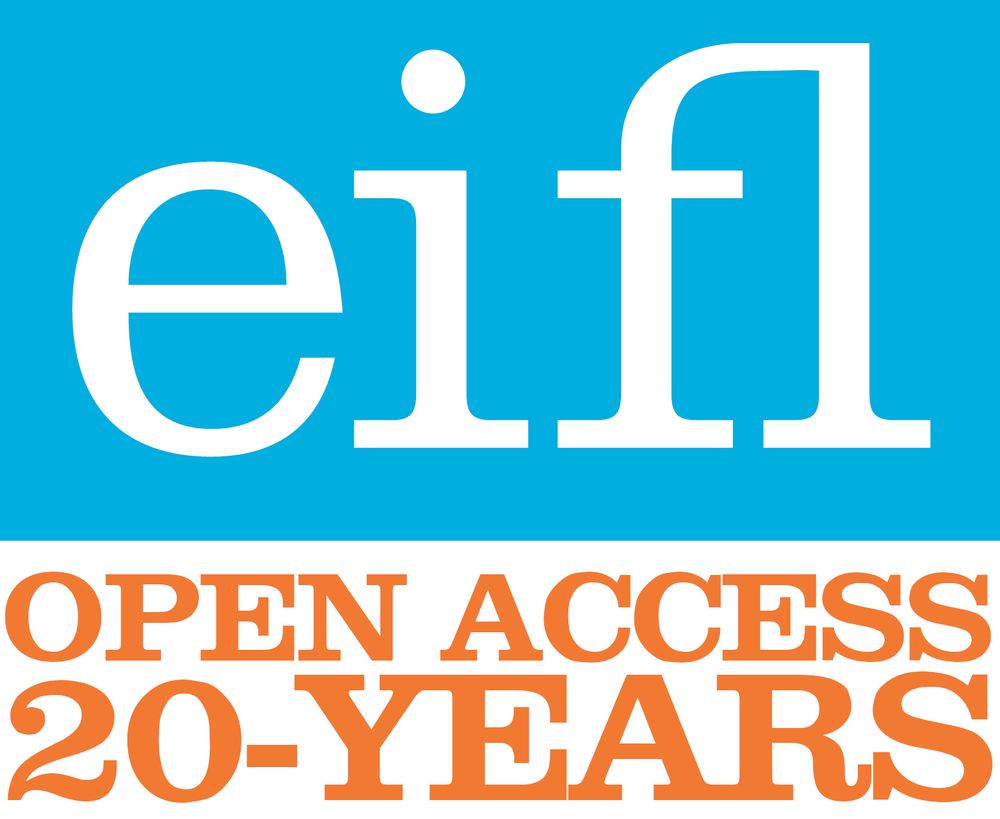

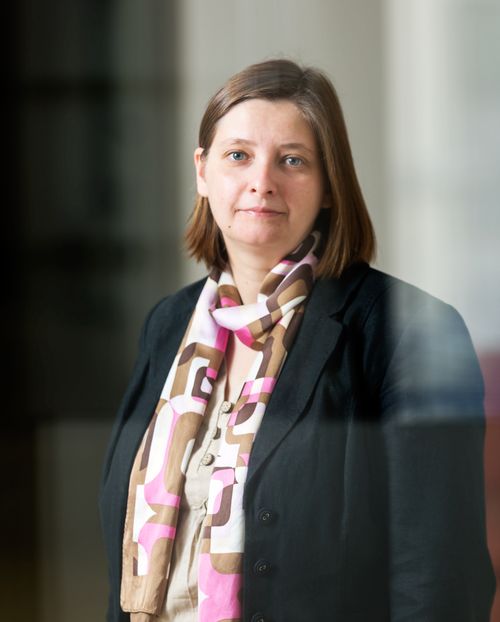
EIFL was among the original signatories to the Budapest Open Access Initiative (BOAI) that coined the term open access (OA), and in 2002 BOAI launched a global campaign for the immediate, online, free and unrestricted availability of all peer reviewed research literature. A year later, early in 2003, EIFL launched the Open Access Programme (EIFL-OA) to take forward the BOAI vision, to raise awareness about OA, to set up OA journals and repositories and to introduce OA policies in our partner countries. Today, open access to research literature is included in the broader framework of open science, an approach that makes all aspects of scientific research open and transparent at all stages, from research design to dissemination of results.
Thank you to the funders of the EIFL Open Access Programme’s work - Arcadia, European Commission, Open Society Foundations, SPIDER (at Stockholm University) and Wellcome.
To celebrate our 20th birthday we asked our partner library consortia to share stories about their achievements in advancing open access and open science in their countries. We have also received many messages of support from our global partners. We share these stories and testimonies below.
Thank you to everyone who contributed to our 20th Anniversary celebrations.
Our vision is a world in which all people have the knowledge they need to achieve their full potential.
We asked our partner library consortia to share achievements in open access and open science in their countries. Click on the country to read the story.
Dr. Buhle Mbambo-Thata - Lesotho
Naniki Maphakwane - Botswana
Dr. Patrick Mapulanga - Malawi
Dr. Arnold Mwanzu - Kenya
Dr. Richard Lamptey - Ghana
Girma Aweke - Ethiopia
David Bukenya - Uganda
Dr. Anna Chulyan - Armenia
Dr. Cecile Coulibaly - Cote d’Ivoire
Mohammad Abuhamdieh - Palestine
Nino Pavliashvili - Georgia
Milestones in the history of EIFL-OA and the programme’s contribution to advancing open access and open science.
Advocating, implementing and practising open access and open science
Chief University Librarian, Kenyatta University - Kenya
“KLISC and EIFL have together built a strong base for increasing and improving open access journal publishing in Kenya for wider research accessibility and discoverability.”
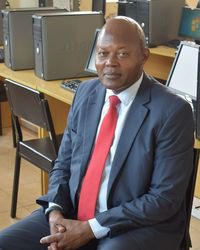
Open access journal publishing in Kenya is steadily increasing as a result of a project that was implemented by the Kenya Library and Information Services Consortium (KLISC) in 2022, with support from EIFL.
Before the project, only three KLISC member universities had active online open access journals, says Dr Gitau Njoroge, who is EIFL’s Open Access Coordinator in Kenya. “About 20 of our member institutions were publishing print journals and we targeted those that wanted to publish their journals online.
“The key challenge was to convince university managements that high quality open access journals could increase visibility of research output and raise university profiles. We achieved this by ensuring that senior staff participated in awareness-raising and training workshops, which we organized in five regions of Kenya.
“We trained editorial boards, researchers, ICT staff and librarians in open access publishing. We set up Open Journal Systems (OJS) platforms for hosting online journals at 17 institutions. We trained technical staff to customize and manage the platforms. In addition, we spoke about meeting quality standards for indexing in directories like the Directory of Open Access Journals (DOAJ). And we stressed the importance of policies to ensure adherence to best practices.”
As a result, the number of open access journals being published is steadily increasing. Some universities such as Meru, Rongo, Strathmore, Kambianga and Kirinyaga have published the latest issues of their journals online, and other institutions have also uploaded back issues.
“There is now a new enthusiasm for open access publishing and a ‘can-do’ attitude. We will continue to build on this through follow-up workshops to make sure that publishing schedules and quality standards are maintained,” says Dr Njoroge.
Interview extracted from EIFL Annual Report, 2022
Associate Professor, Lviv Polytechnic National University - Ukraine
“Open Science is science done right. It is a unique opportunity for Ukrainian research to become fully integrated into the European and global systems and finally leave all the post-Soviet rudiments behind. Implementation of Open Science in Ukraine will be one of the urgent tasks after the victory over Russia.”
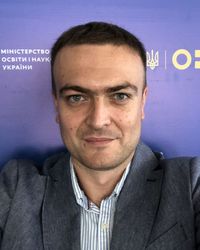
In November 2021, Ukraine launched a draft National Plan for Open Science. The plan was the culmination of six months of intensive meetings organized by the Ministerial Working Group on Development of the Ukrainian National Plan for Open Science.
Oleksandr Berezko coordinates the Working Group, which comprises experts from 18 Higher Education Institutions, research institutes, libraries, and NGOs - including EIFL.
Ukraine was one of the first countries where EIFL began promoting open access, with an awareness raising workshop in 2004. Over the years EIFL has, through a variety of strategies and activities, helped to build open access and open science capacity of scholars, research managers and librarians. Today, Ukraine has over 160 open access institutional repositories and 17 institutions have adopted open access policies.
“EIFL’s long and consistent involvement helped lay the ground and smooth the passage of the draft National Plan,” said Oleksandr.
Once formalized, the National Plan will mandate open access to research output and create conditions for effective work with Open / FAIR (Findable, Accessible, Interoperable, Reusable) data. The draft Plan is currently being reviewed by government ministries, and discussed at a series of public events.
“The plan will help integrate our research infrastructures into European e-infrastructures - the EOSC (European Open Science Cloud). And it will reform research assessment, promote citizen science, and build capacity in open science,” said Oleksandr.
Interview extracted from EIFL Annual Report, 2021
Librarian, College of Science, Kwame Nkrumah University of Science & Technology - Ghana
“Together, EIFL and CARLIGH have succeeded in building new open science champions. In 2021 we will create a roadmap for future development of institutional and national open science policies, infrastructure and skills in Ghana.”
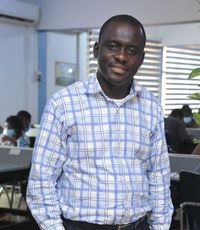
In 2020, EIFL and our partner library consortium, the Consortium of Academic and Research Libraries in Ghana (CARLIGH), launched a training programme to raise librarians’ and researchers’ awareness about open access and open science and to stimulate advocacy for adoption of open science policies.
“Currently, just the CSIR and the university where I work have adopted open access policies,” said Richard Bruce Lamptey, EIFL’s Country Coordinator in Ghana.
“The COVID-19 pandemic put a stop to face-to-face training, so with EIFL we organized six webinars. Over 550 people took part, including many librarians and researchers who might not have been able to travel to in-person events.
“Already I can see changes. Our librarians are more able to advise researchers about publishing in quality open access journals, and how to avoid predatory publishers.
“Our researchers are more careful about where they publish – they prefer open access journals that have greater visibility and bring more citations. And more researchers are using ORCID to identify themselves, which improves attribution, recognition and discoverability of research outputs.”
Interview extracted from EIFL Annual Report, 2020
Deputy University Librarian - Uganda
“The appearance of open access repositories has increased universities’ self-awareness - they are now more aware of the quantity and quality of their research output.”
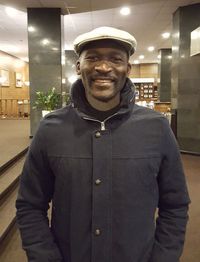
David Bukenya, Deputy University Librarian at Uganda Christian University (UCU), is a passionate advocate for open access (OA) - the immediate, online, free and unrestricted availability of research literature. His university was the first in Uganda to adopt an OA policy.
In 2016 the Consortium of Uganda University Libraries (CUUL) appointed David to be EIFL Country Coordinator. David’s appointment coincided with a major project that EIFL was implementing with CUUL to increase availability and visibility of Ugandan research. The project included setting up OA repositories and drafting, discussing and adopting institutional OA policies.
“The project was very intense. We worked with 11 universities, each with a different institutional dynamic. All 11 universities now have well-functioning OA repositories that are registered with search engines, and research from our universities can be easily found on the internet. The number of documents in the repositories has quintupled, to over 23,000.
“Adoption of OA policies took longer. Nonetheless, by the end of 2019, five of the 11 universities had adopted policies. At the other six, policies are in the pipeline,” said David.
CUUL is continuing to provide on-demand support for repository managers and administrators through an online Uganda Dspace User Group.
Interview extracted from EIFL Annual Report, 2019
Deputy Director in Charge of Research, UVCI - Côte d'Ivoire
“We are now sharing our experience of developing a national open access policy and repository with other Francophone countries in Africa.”
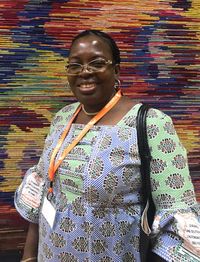
Dr Cecile Coulibaly coordinates the national open access repository, which is hosted by the Université Virtuelle de Côte d'Ivoire (UVCI). The main mission of the university is to enhance e-learning and digital skills in all higher education institutions in the country. Cecile is also EIFL Country Coordinator for Côte d'Ivoire.
In 2016, UVCI was mandated by the Ministry of Higher Education and Scientific Research to set up a national open access repository, but collecting research output from universities and clearing copyright were challenges.
In 2019, EIFL delivered a series of workshops for librarians and university administrators in Côte d'Ivoire on copyright management and licensing, institutional and national open access policies, and how to collect, describe and make research openly available in the national repository.
“The EIFL workshops have sparked discussion among all public universities and created a space for collaborative development of institutional and national open access policies in Côte d'Ivoire.
“There are already over 17,500 publications openly available in the national repository. We are also upgrading repository software to enable us to provide more services to researchers and universities and next year we are planning to adopt a national open access policy,” said Cecile.
Interview extracted from EIFL Annual Report, 2019
University Librarian - Ethiopia
“Adoption of open access policies will transform the academic landscape in Ethiopia!”
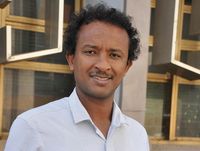
Solomon Mekonnen Tekle, librarian at Addis Ababa University (AAU), is a passionate advocate for open access (OA) – the immediate, online, free and unrestricted availability of research literature.
“I first heard about OA in 2007 through an EIFL workshop. I could immediately see how OA would help Ethiopian researchers by making their research visible and attracting collaboration and funding.”
In 2014, Solomon was appointed to serve as EIFL-OA Coordinator for the Consortium of Ethiopian Academic and Research Libraries. He took part in another EIFL workshop in which participants drafted an OA policy for AAU that will mandate OA to all research conducted at the university.
“I shared our draft policy with other universities, as a model, and they also began drafting policies.
“We had our first successes in 2018, when Jimma University and Arba Minch University adopted the very first OA policies in Ethiopia.
“We reached out to the Ministry of Science and Higher Education and they formed a working group to draft a national OA policy, based on our model.
“The national policy will mandate all universities and research institutes that receive public funding to make their research OA,” said Solomon.
Interview extracted from EIFL Annual Report, 2018
Rector, University of Yangon - Myanmar
“Now, 20 years after I completed my PhD in physics at Hokkaido University in Japan, my professor and classmates have found me, know what I am doing, and we are in touch again.”
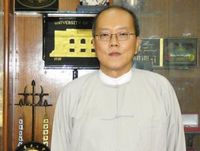
When Dr Pho Kaung, Rector of the University of Yangon, gets up in the morning one of the first things he does is go online to see how the university’s institutional repository is being used.
“I want to see how many researchers are studying our research papers, and to check what new papers have been deposited,” he explained.
After decades of isolation, Myanmar is opening up to the outside world. The University of Yangon is going through a process of revitalization, taking steps to increase visibility of research and establishing links with leading universities in Asia, Europe and North America.
In 2017, with training, advice and technical support from EIFL, the University of Yangon established an institutional open access repository – University of Yangon Repository (UYR). There are already over 500 publications from 21 university departments in the repository.
Dr Pho Kaung has deposited all his research in physics in the repository.
The repository has made the university more visible.
By the end of 2018, there had been almost 9,000 visits to the repository by people from 85 countries, and over 2,000 research papers had been downloaded.
Interview extracted from EIFL Annual Report, 2018
Open access journal editor - Serbia
“Improved open access publishing has made our journal more visible. In 2017 the number of visits to our journal increased from 300 to 1,800”

Srdjan Prodanovic is passionate about his work as co-editor of ‘Filozofija i drustvo’ (Philosophy and Society), a journal published by the University of Belgrade.
Like many Serbian research journals, ‘Filozofija i drustvo’ was available in open access (OA), but was struggling to reach a global audience. “The reason is – we were failing to meet the quality standards required by journal indexing services, and so these services were excluding our journals. Sadly, visibility of our research was decreasing,” explained Srdjan.
In 2016/17 EIFL, the National Library of Serbia and KoBSON launched a project to improve OA publishing practices in Serbia. Activities included raising awareness about the benefits of OA publishing; technical workshops on the open source publishing platform OJS and creating templates for journal policies.
“We migrated our journal to OJS in March 2017, which improved our publishing operations. We also developed and published detailed journal policies which clearly describe our commitment to quality, peer-reviewed OA publishing.
“Now ‘Filozofija i drustvo’ has been accepted by the Emerging Sources Citation Index and the Directory of Open Access Journals. We have applied to more indexes and I am confident our applications will succeed,” said Srdjan.
Interview extracted from EIFL Annual Report, 2017
Library director, West Bank - Palestine.
“FADA is opening our publications to the world, and facilitating learning for our local scholars who face problems meeting each other because of restrictions on movement.”
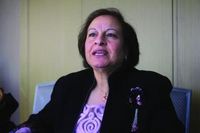
Diana Sayej Naser, director of Birzeit University Main Library, is a passionate advocate for open access, which has special significance in Palestine, a divided country with restrictions on movement between its two parts, the West Bank and Gaza.
The restrictions make it difficult for scholars to meet to share knowledge, and open access helps overcome this challenge.
In 2015/2016 EIFL travelled to Palestine and organized a series of workshops that resulted in adoption of an institutional repository policy by the Birzeit University council and the creation of an open access repository, titled ‘FADA’.
Since the launch of the repository in October 2016, the library reports that enthusiastic members of the university community have deposited over 3,500 publications, including journal articles, research papers, books and rare books, theses and dissertations.
In 2017 the number of works deposited into FADA is expected to grow as Birzeit University fully embraces open access, and depositing work in the institutional repository becomes central to faculty promotion and evaluation of research.
Interview extracted from EIFL Annual Report, 2016
Research funder - Lithuania
“The guidelines are a major step in the right direction: Open Science practices will make our research open to all scientists, creating the best opportunities for breakthroughs in research in a small country like Lithuania.”
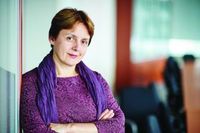
Professor Rūta Petrauskaitė, vice-chair of the Research Council of Lithuania (RCL), was one of the prime motivators for development of the RCL’s ‘Guidelines on Open Access to Scientific Publications and Data’, which were adopted early in 2016.
EIFL has been raising awareness about open access (OA) in Lithuania since 2005, working with the Lithuanian Research Library Consortium.
As a result of advocacy led by the consortium, Lithuania’s Law on Higher Education and Research (2009) requires OA to all publicly-funded research. However, the law did not sufficiently influence practice.
The European Commission-funded project, PASTEUR4OA, where EIFL and RCL were partners, offered an opportunity for Lithuania to develop OA guidelines aligned with those of other European Union member states and the European Commission.
“The 2016 RCL guidelines ensure that OA is practiced in Lithuania. When drafting research proposals for submission to the RCL, scientists must consider openness of research outputs. Since the guidelines, there has been a good increase in the number of publications deposited in OA repositories,” said Professor Petrauskaitė.
Interview extracted from EIFL Annual Report, 2016
Research Administrator - Armenia
“The new repository elevates Armenian science by making it visible to researchers in Armenia and other countries.”
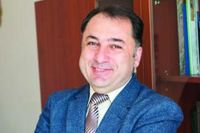
Dr Atom Mkhitaryan coordinates the work of the Supreme Certifying Commission (SCC) of Armenia, the body that awards PhD and Doctor of Sciences degrees in Armenia.
To award degrees, the SCC must review all new theses and dissertations. The first step, Dr Mkhitaryan explains, is to delve into a database of over 18,000 dissertations to check for prior research. The process is slow because most of the dissertations are only available on paper, and – with new dissertations coming in at about 600 a year – there is intense pressure on SCC staff.
So the SCC welcomed the opportunity to take part in an EIFL-funded project that, in 2015, led to the launch of the country’s first national open access repository of electronic theses and dissertations.
“The value of the repository is incalculable. It speeds up our work, because we are now able to review dissertations online. Also, researchers will more easily be able to find prior work in their subject areas,” said Dr Mkhitaryan.
From 2016, all new theses and dissertations will be deposited in the repository, which is managed by the National Library of Armenia.
Interview extracted from EIFL Annual Report, 2015
Rector, University of Mandalay - Myanmar
“The open access repository will enable our university and researchers to establish new international and national research partnerships.”
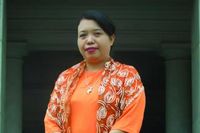
The vision of University of Mandalay, where Professor Dr Thida Win serves as Rector, is to strive to become the leading research university in Myanmar.
This is no small task in a country that has very recently begun opening up to the outside world after decades of isolation – and is one reason why Professor Dr Win has embraced the concept of open access, which enables immediate, unrestricted and free online access to peer-reviewed research.
In 2015, EIFL introduced the concept of open access to the university through a series of workshops. The university formed an open access working group whose first steps were to draft an open access policy and to set in motion processes for development of an open access repository.
“Open access is essential for us to achieve the university’s vision,” said Professor Dr Win. “We need access to up to date scientific publications, and to be able to make our research visible and available to scientists and researchers in Myanmar and the international community.”
The repository will enable access to articles, books and monographs, conference proceedings, research reports, and final final copies of theses and dissertations.
Interview extracted from EIFL Annual Report, 2015
University Administrator - Kenya
“The research we do is supposed to be for the public good. We are being funded by public institutions and donors, and I think it is good to be able to share.”
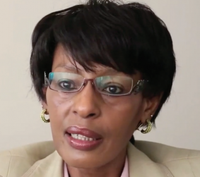
Professor Lucy W. Irungu is the Deputy Vice-Chancellor, Research, Production and Extension at the University of Nairobi, the largest university in Kenya.
The university conducts important research in a variety of fields. However, much of this research was inaccessible to most Kenyans and the international community, because it was still being printed and placed on shelves.
The EIFL Open Access Programme supported Professor Irungu and the university to develop an open access policy to ensure that research results are made freely available to all.
To put the policy into practice, Professor Irungu worked closely with Rosemary Otando, a librarian at the University of Nairobi, and her team to launch an open access repository (an online database that houses all the research).
The policy has been instrumental in helping the university to open up a wealth of knowledge from Kenyan researchers to the world.
By the end of 2014 the digital repository contained over 70,000 documents.
Interview extracted from EIFL Annual Report, 2014
University Student, Kathmandu - Nepal
“I see a bright future for open access in Nepal. This means a bright future for my country, because educational standards will rise when our students have better access to knowledge.”
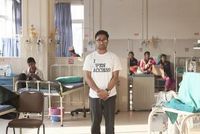
Roshan Kumar Karn is a medical student in his final year of study at Tribhuwan University in Kathmandu, Nepal. He wants to help people who are suffering from heart disease, and plans to specialize in interventional cardiology.
But as he progressed in his studies, Roshan realized that the information he needed was not available in his textbooks. He began researching the internet for medical texts.
He recalls the joy he felt when he found relevant abstracts, only to be disappointed when he was locked out by publisher paywalls.
After learning about open access at an international conference, he launched Open Access Nepal, an organization that promotes free and unrestricted online access to research in his country.
With support from the EIFL Open Access Programme, the new organization hosted its first conference during Open Access Week 2014.
Roshan’s future plans include spreading awareness of open access at five major universities, building an institutional repository at Tribhuwan University to house its research online, and working with the Government of Nepal to digitize textbooks and turn them into open educational resources.
Interview extracted from EIFL Annual Report, 2014
Doctor, EMBU - Kenya
“The information is open and available, and you search for what you want. Open access is solving one of the biggest problems I’ve had.”

Bessie works as a general physician in Embu General Provincial Hospital in Kenya’s Eastern Province. The hospital serves a vast rural area that has only one doctor to every 10,000 people.
Bessie struggles to access information. Distance and pressure of work mean her colleagues are not available to meet and share information about diagnoses, illnesses and treatments.
Bessie became aware of open access — the immediate, online, free and unrestricted availability of peer-reviewed research literature — through a workshop supported by the EIFL Open Access Programme.
The workshop was part of an EIFL project that educated researchers, students and health workers about new ways of sharing scholarly information. The workshop also raised awareness about open access to the Kenyan medical research.
Bessie has now become a frequent user of open access literature to treat her patients.
In the future, Bessie hopes to return to university to specialize in epidemiology, the study of how often diseases occur in different groups of people and why. To study in this field she will need to access research in many scientific disciplines such as biology, statistics, social sciences and even engineering.
Bessie says she will continue her professional career in the Kenyan public healthcare sector, giving back to her community and the people of Embu.
Interview extracted from EIFL Annual Report, 2014
Minister of State-Higher Education - Uganda
“A lot of research has been undertaken over the years in Uganda, and breakthroughs made. However, results have not been disseminated and, as a result, have not added value to the lives of Ugandans”
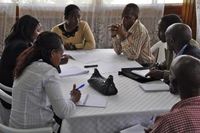
Dr. Muyingo was speaking at the very first national open access conference, which EIFL co-hosted with the Consortium of Uganda University Libraries (CUUL) in May 2013.
He called upon the National Council for Higher Education and Makerere University to put in place a system to ensure that all publicly-funded research becomes freely and openly available.
Barriers to accessing research and sharing knowledge are not only an issue in Uganda.
Every year, libraries around the world advocate for change by taking part in Open Access (OA) Week, a global event that calls for open access as the new norm in scholarship and research.
In 2013, over 30 EIFL-partner countries hosted advocacy and awareness-raising events during OA Week. EIFL’s Open Access programme encouraged libraries across the network to participate and provided assistance in their preparations.
Interview extracted from EIFL Annual Report, 2013
EIFL Open Access Coordinators nominated by 32 library consortia from EIFL partner countries.